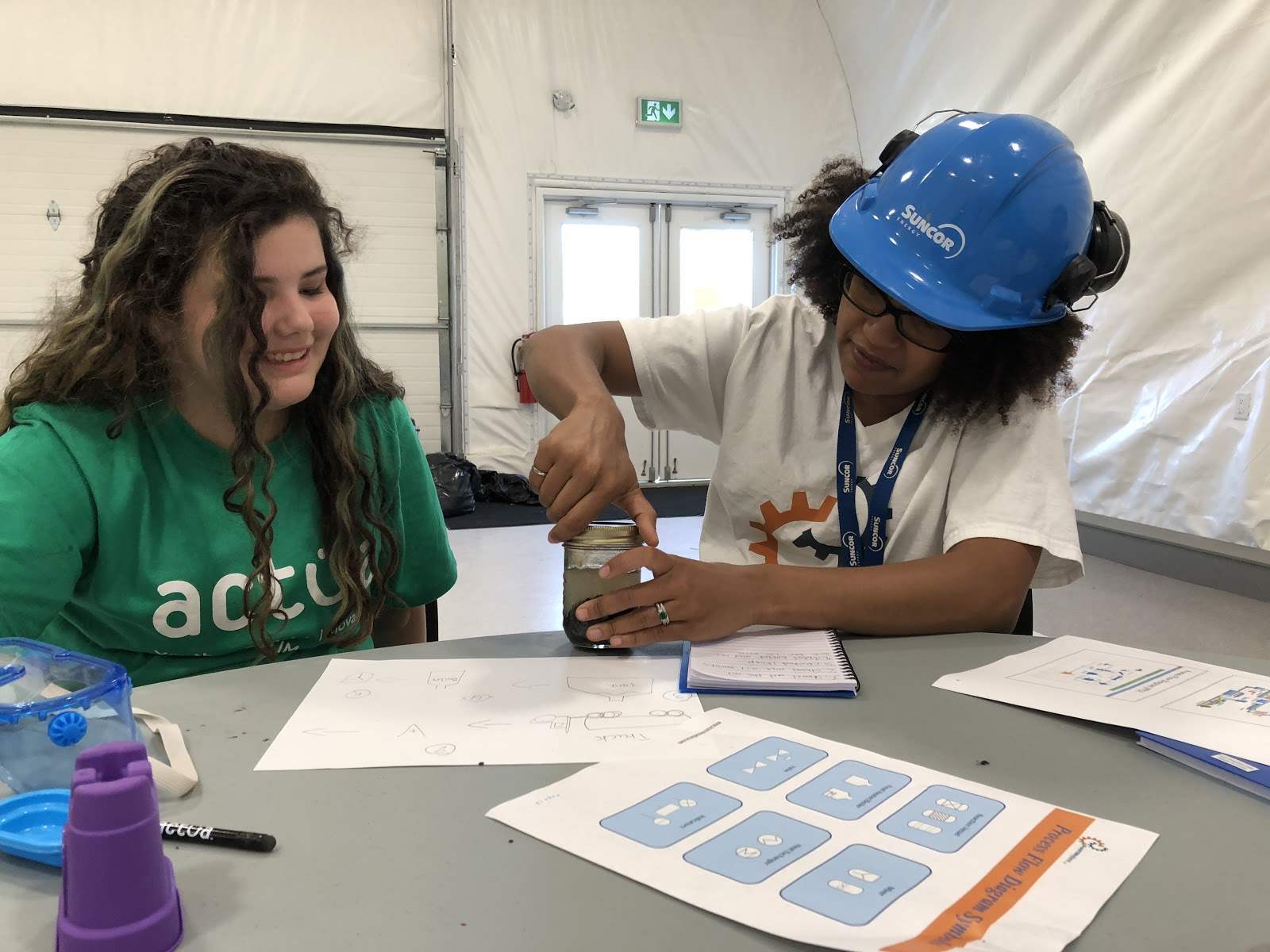3. Recruiting Mentors
Recruiting Mentors
Now that you understand the value of having role models and mentors engaged in programs, you may be wondering how to find mentors and gauge their interest in participation. Recruiting mentors can seem a little daunting, but each of you likely has a relationship with a professor, community leader, peer, or someone from a related STEM industry that would make a great mentor.  This image shows a mentor working with a camp participant on a hands-on activity during a mentorship event
This image shows a mentor working with a camp participant on a hands-on activity during a mentorship event
If you’re still stuck thinking about who you know that could be a mentor - This section should provide some ideas on how to get started!
Engaging mentors can be an opportunity for youth not just to see the wide variety of STEM Careers out there and how STEM relates to their lives, it can also be an opportunity for youth to see the diversity of people in STEM fields. When you’re selecting your mentors, keep in mind the diversity of role models you engage. For example: Elders and Knowledge Keepers may be gifted in specific ways with different skills; such as understanding medicinal qualities of certain plants.
Who can Mentor? Where to find Mentors?
The following list provides some examples of different people who can be great mentors in your program. In addition to the STEM professors and partners who mentor for camps and clubs, consider who else would add value, diversity, and important varied perspectives and experiences to your mentorship program.
Important Reminder: When beginning to consider who to ask to mentor, remember that many programs already have relationships with recurring mentors. Relationships are developed over time and should be acknowledged and nurtured. Ask your director for direction on relationships that exist within your program already and what processes are in place for asking mentors to participate in programs. This is particularly important with Indigenous communities or connections at your Indigenous Resource Centre on campus.
Mentor Ideas:
- Faculty and staff at your institution (including your Indigenous Resource Centre)
- Local Knowledge Keepers
- Parents
- STEM business professionals
- Local funders
- Friends and other student leaders in STEM or Education/Teaching programs
- Educational Centres
- Community members
- Actua Network - sometimes Actua is able to help facilitate the placement of industry professionals into programs. Talk to your director about opportunities for Actua to help place mentors at your program
Consider seeking mentors that perceive and characterize STEM fields in ways that differ from one another. Diverse perspectives enhance STEM and our programs. For instance, Indigenous peoples have always understood STEM. Recognizing STEM in Traditional Knowledge can be one way of allowing for a wider variety of perspectives and worldviews to be shared in programming.
“In my experience with the Assembly of First Nations as the Director of Infrastructure, Housing and Emergency Management, I see firsthand the significant needs of First Nations and how engineering plays a significant part in meeting these needs. Encouraging more of our youth to consider engineering for their future means creating strong and healthy First Nations communities, with the technical expertise from within to help community development. The unique approach of AAE in providing outreach by engaging Indigenous role models in engineering makes the potential of becoming an engineer very visible and concrete to our youth.”
- Actua, Network Member Director
If you would like to engage mentors - via Actua funders - or have questions about mentorship opportunities, please send requests and inquires to member.questions@actua.ca
Activity: Brainstorm
- Independently or with other instructor staff, brainstorm a list of 5 people you know that you might ask to mentor at an upcoming event.
- For two of your examples, consider three key selling points you could highlight.
- If you are working in groups, try out your pitch!
Viewed 3,589 times